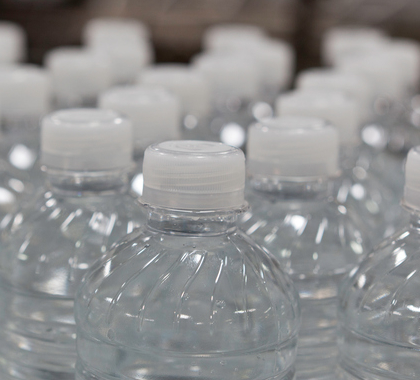To little fanfare, in mid-August the Trump administration reversed a policy implemented by former president Barack Obama attempted to ban or the restrict the sale of bottled water in National Parks.
At Obama’s direction in 2011, the National Park Service (NPS) put in place a policy to encourage national parks to end the sale of bottled water, in order to reduce the amount of plastic litter. The aim was to cut back on plastic litter. Although it was not actually an outright ban, 23 out of 417 national parks, including Grand Canyon National Park and Zion National Park, ended bottled water sales, instead encouraging visitors to use tap water and refillable bottles instead.
Defending Individual Choice
In reversing this Obama-era policy, the Trump administration says whether or not to use bottled water should be the choice of park’s visitors.
“While we will continue to encourage the use of free water bottle filling stations as appropriate, ultimately it should be up to our visitors to decide how best to keep themselves and their families hydrated during a visit to a national park,” said Acting NPS Director Michael T. Reynolds in a statement. “The 2011 policy, which encouraged national parks to eliminate the sale of disposable water bottles, has been rescinded to expand hydration options for recreationalists, hikers, and other visitors to national parks.
“The ban removed the healthiest beverage choice at a variety of parks while still allowing sales of bottled sweetened drinks,” said Reynolds.
Flawed Decision
Jill Culora, vice president of communications with The International Bottled Water Association applauded NPS’s decision.
“”The International Bottled Water Association applauds this action, which recognizes the importance of making safe, healthy, convenient bottled water available to the millions of people from around the world who want to stay well-hydrated while visiting national parks,” Culora said.
“The rescinded policy was seriously flawed,” said Culora. “It was established to reduce waste left behind by park visitors, but people coming to the parks that banned the sale of bottled water were still allowed to buy other less healthy beverages – including carbonated soft drinks, sports drinks, teas, milk, beer, and wine – that are packaged in much heavier plastic, glass, cans, and cardboard containers.
“IBWA will continue to work with the NPS to develop effective and fair recycling programs to comprehensively address the waste issues within the national parks,” Culora stressed.
H. Sterling Burnett, Ph.D. ([email protected]) is the managing editor of Environment & Climate News.




